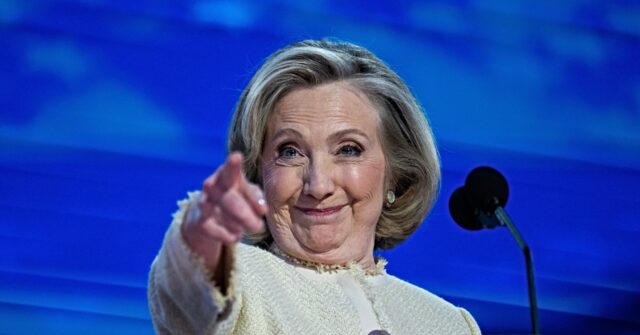Former President Donald Trump has publicly reacted to President Joe Biden’s recent characterization of his supporters as “garbage,” expressing that he believes this derogatory term is even more damaging than former Secretary of State Hillary Clinton’s infamous labeling of Trump supporters as “deplorables.” During a rally in Pennsylvania, Trump pointed out the historical context of Clinton’s remarks, which initially garnered significant backlash when she used the term to describe half of Trump’s supporters in 2016. Trump argued that Biden’s comments were more harmful, suggesting that calling people “garbage” carries a deeper stigma than the previous label used by Clinton.
In his response, Trump also offered a humorous twist, indicating that Biden’s language reflects a lack of understanding or awareness. He instructed his audience to “forgive” Biden, claiming that he “knoweth not what he said.” This remark suggested that Trump views Biden as somewhat out of touch or not fully comprehending the implications of his statements. The comparison of Biden’s rhetoric to Clinton’s served to underscore the political climate in which both Democratic and Republican figures often find themselves navigating intense and polarizing language as they rally their bases.
The remarks from President Biden came during a campaign call with a group called Voto Latino, where he was responding to a joke made by comedian Tony Hinchliffe during a recent Trump rally. Hinchliffe had made a remark that played into negative stereotypes about Puerto Rico, referring to it as a “floating island of garbage.” Biden’s comments were interpreted as a criticism aimed not just at Hinchliffe but also at the broader group of Trump supporters, which has been a source of controversy in the wake of increasing political divisiveness in the United States.
Critics of Hinchliffe’s joke argued that it reflected underlying racism and xenophobia associated with Trump’s brand of politics, drawing a connection to the historic tensions surrounding racial and ethnic minorities in the U.S. The White House has since clarified Biden’s comments, asserting that he was solely referencing Hinchliffe rather than condemning all Trump supporters. This clarifying statement attempts to mitigate backlash from the controversy that has arisen from Biden’s choice of words and to keep the focus on the distinction between racially charged humor and political rhetoric.
The exchange highlights the intense dynamics of political discourse in today’s climate, especially concerning how leaders frame their political adversaries. In recent years, both parties have leaned heavily into polarized rhetoric, and incidents such as this can inflame tensions further. Biden’s remarks serve as not only a commentary on Trump supporters but also a reflection of a widespread sentiment among Democrats that they must contend with the more extreme factions within the Republican Party, which they often associate with divisive or harmful views toward marginalized communities.
As the political landscape continues to evolve towards the upcoming elections, the significance of language and perception remains critical for both parties. The responses from both Trump and Biden illustrate the ongoing strategic maneuvering each political figure undertakes in addressing their opponent’s positions and the sentiments of their respective supporters. In a deeply divided electorate, the interpretation of comments and the contexts in which they are made are continually scrutinized and leveraged in a broader narrative battle that shapes public opinion and voter sentiment.

